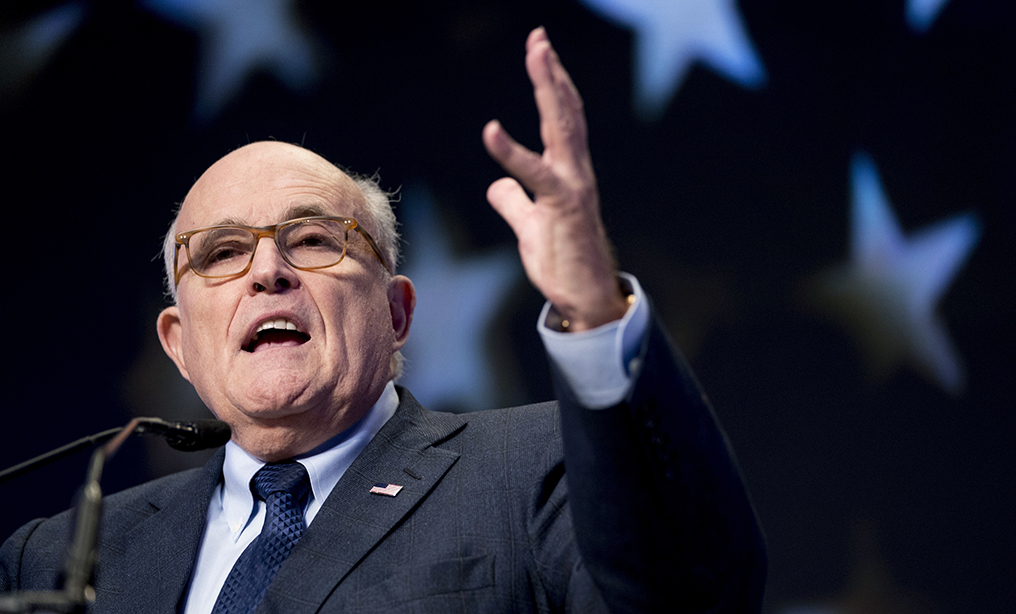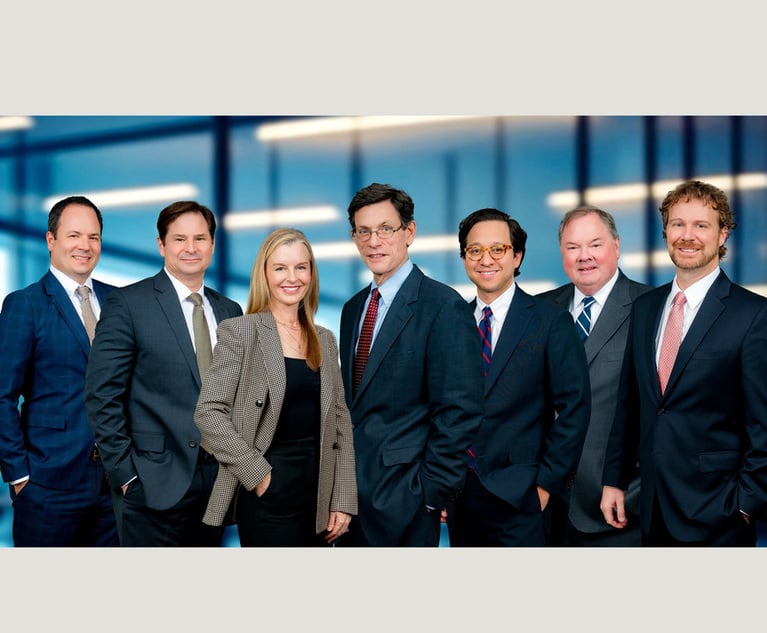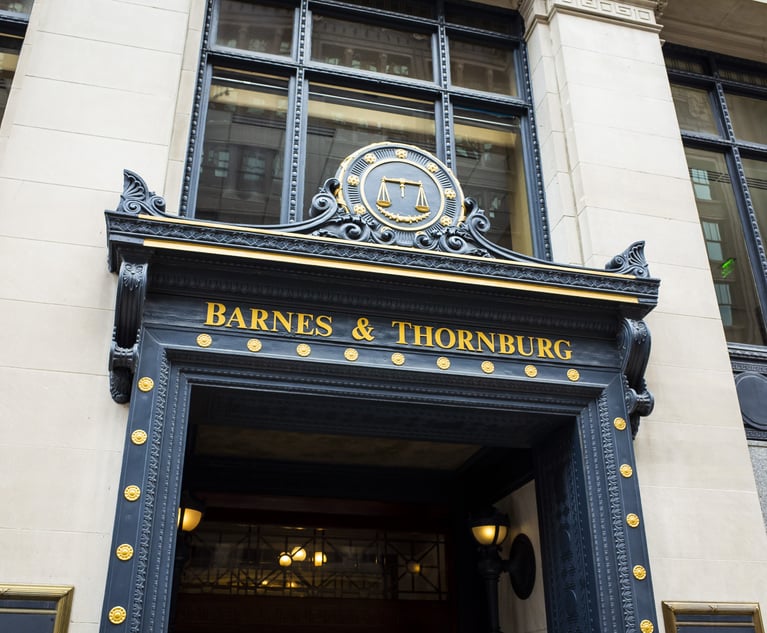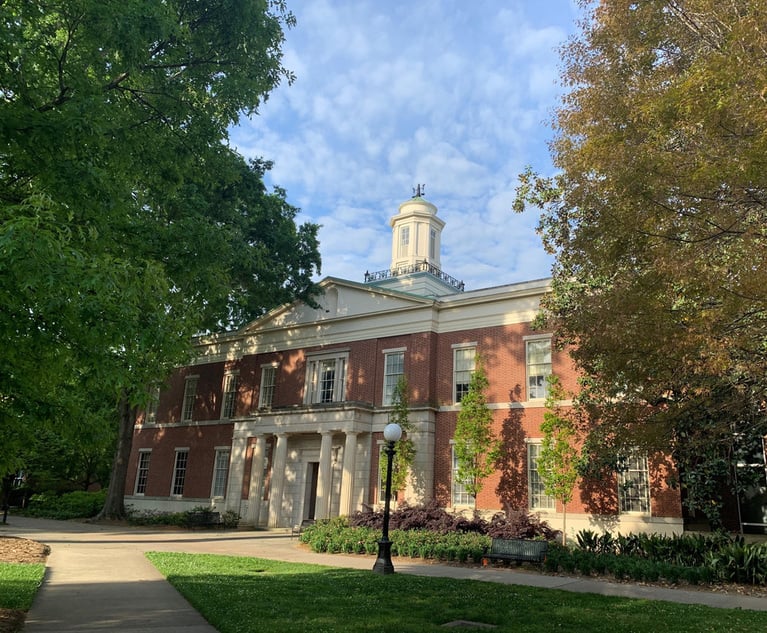NY Lawyers Bemoan a 'New' Rudy Giuliani 'We Don't Understand'
Many former colleagues and adversaries of the former mayor and federal prosecutor now echo various levels of bewilderment, frustration, and concern about the turn they've seen him take in representing his client, President Donald Trump.
February 07, 2019 at 03:09 PM
7 minute read
The original version of this story was published on New York Law Journal
 Rudy Giuliani speaks at the Iran Freedom Convention for Human Rights and democracy in Washington in May. Photo: Andrew Harnik/AP
Rudy Giuliani speaks at the Iran Freedom Convention for Human Rights and democracy in Washington in May. Photo: Andrew Harnik/AP
As counsel to President Donald Trump, former New York City Mayor Rudolph Giuliani has made statements, ostensibly in his client's defense, that have left some in the legal realm scratching their heads.
One critic, a retired federal appellate judge, even asked in a letter to the editor of the New York Law Journal why the former mayor and Manhattan U.S. attorney hasn't been brought up on disciplinary charges.
As for New York attorneys who have worked closely with Giuliani and the offices he has led in the past, some recall his days as the hard-charging U.S. attorney for the Southern District of New York or the two-term mayor who took credit for making New York City safe and leading the city in the wake of the Sept. 11, 2001, terrorist attacks and wonder what's become of him.
Others, however, say that, despite Giuliani's marquee accomplishments, he might not have much to boast about in terms of his legal acumen.
Martin & Obermaier name attorney John Martin, who served as U.S. attorney for the Southern District of New York immediately before Giuliani became the head of the office in 1983, and later served as a district judge in the Southern District for 13 years, spoke of a dissonance between the Giuliani he'd known and the one he sees working for Trump today.
“Back in the day he and I had differences on some things but I always thought of him as a good lawyer,” Martin said of Giuliani. “I'm not so sure I think the same thing about him today.”
Giuliani himself did not respond to direct requests for comment. A number of past and recent allies of his likewise did not comment, either by not responding to requests sent by the New York Law Journal, or explicitly declining those requests.
Giuliani's reputation for pugnacity extends back to his time as U.S. attorney, according to prosecutors who served in the office at the same time. According to one person, the trait cut both ways.
The attorney, who is now a partner at a top law firm and was granted anonymity to be able to speak freely about his time working under the future mayor, said in some ways Giuliani's approach as U.S. attorney was a good thing. He was extremely aggressive, the litigator said, and gave line assistants a lot of leeway, while pushing them hard on their cases.
These same tactics earned Giuliani and the office criticism from judges and the public for at times stepping out of line, such as the use of public “perp walks,” which predictably garnered media coverage for the SDNY and placed the accused in a harshly negative light, and accusations of leaks to the media.
“He was criticized and praised for just that—being very aggressive, not being shy about going after anybody,” the attorney said.
Now, the attorney joins Martin and others, some of whom declined to go on the record, in echoing various levels of bewilderment, frustration, and concern about the turn they've seen their old boss and colleague take in representing Trump. In some instances, the bond was even closer; the attorney said that Giuliani joined in some family functions.
“The new Rudy we don't understand,” he said.
The attorney said two specific issues stood out for him and others he'd been in discussions with. First, there was disappointment at what the lawyer described as Giuliani “turning a blind eye” to what he believed were evident issues with Trump's actions and behaviors. Similarly, former prosecutors were frustrated at Giuliani's new-found concerns over law enforcement and prosecution tactics by Special Counsel Robert Mueller III and other federal prosecutors that are, by the attorney's account, “tame compared to some of the shit [Giuliani] used to do.”
“This is like routine prosecution. There's been no overreaching that any of us have seen in any of those offices,” the attorney said. “Mueller doesn't hold press conferences. Rudy would hold press conferences every week, beating his own drum and carrying on.”
From Trump Critic to Legal Bullhorn
In 2015, before he became Trump's legal bullhorn, Giuliani criticized the then-candidate's proposal to ban Muslim immigration as a violation of the First Amendment, an area of law that presented a persistent challenge for Giuliani during his mayoral tenure, from 1994 through 2001.
The New York Civil Liberties Union reported in 1999 that it squared off in court with the Giuliani administration in 21 different First Amendment cases, of which 15 the organization provided direct representation and served as an amicus party in the remaining six. At that point, the NYCLU had been on the winning side in 18 of those cases.
Prominent civil rights attorney Norman Siegel, who served as executive director of the NYCLU from 1985 to 2000, said the group fought a disproportionately high number of First Amendment cases with the Giuliani administration compared with the administrations of Giuliani's two predecessors, Edward Koch and David Dinkins.
Notable free-speech clashes in New York City during the Giuliani years that ended in defeat for his Law Department include a case regarding Giuliani's move to pull city funding for the Brooklyn Museum and evict is from its quarters for displaying an oil painting of the Virgin Mary that was flecked with elephant dung and embedded with pornographic images.
In another case that ended in defeat for the administration, Giuliani proposed a ban on protests and news conferences on the steps of City Hall as part of a broader effort to step up anti-terrorism measures in Lower Manhattan.
“In my opinion he did not understand what the First Amendment provided,” Siegel said of Giuliani. “I was, back then, not impressed with his legal skills.”
As it so happens, Siegel and Giuliani were classmates in the 1960s at New York University School of Law, though Siegel said that the two were not friends. He said that, with respect to Giuliani's current role as Trump's counsel, it seems to fit with Giuliani's apparent desire to be in the “middle of the mix” of things.
Another attorney who clashed with Giuliani during his mayoral tenure was Peter Vallone Sr., a Democratic member of the City Council who served as council speaker in the Giuliani years.
Vallone, who represented Astoria, Queens, said that while he and Giuliani often butted heads over the council's role in the budgeting process and its status as a co-equal branch of government, he was able to cooperate with Giuliani on a number of issues and that the two remain friends today.
As for what he thinks about Giuliani's current service to Trump, Vallone still sees Giuliani as the man who served as mayor of New York City at a time when crime rates dropped precipitously, and who risked life and limb to be at Ground Zero in the wake of the 9/11 attacks.
“I have a great respect for what he did as mayor,” Vallone said. “What he's done thereafter is a different story.”
Read more:
Hasn't the Time Come for Rudy Giuliani to Be Disciplined?
Rudy Giuliani, Working Pro Bono for Trump, Says He Can't Keep Up With Wife's Expenses
Giuliani Says He Had 'No Intention of Hiding' Effort to Influence Romanian Government
This content has been archived. It is available through our partners, LexisNexis® and Bloomberg Law.
To view this content, please continue to their sites.
Not a Lexis Subscriber?
Subscribe Now
Not a Bloomberg Law Subscriber?
Subscribe Now
NOT FOR REPRINT
© 2025 ALM Global, LLC, All Rights Reserved. Request academic re-use from www.copyright.com. All other uses, submit a request to [email protected]. For more information visit Asset & Logo Licensing.
You Might Like
View All
On The Move: Squire Patton Boggs, Akerman Among Four Firms Adding Atlanta Partners
7 minute read

Georgia Justices Urged to Revive Malpractice Suit Against Retired Barnes & Thornburg Atty
4 minute read
Trending Stories
- 1Judge Rules Georgia Railroad Can Seize Land as Landowners Vow to Fight
- 2On the Move and After Hours: Einhorn Barbarito; Gibbons; Greenbaum Rowe; Pro Bono Partnership
- 3On The Move: Squire Patton Boggs, Akerman Among Four Firms Adding Atlanta Partners
- 4Is the Collateral Order Doctrine About to Have a 'Brat Summer'?
- 5Trump Administration Faces Lawsuit Over USAID Stop-Work Orders
Who Got The Work
J. Brugh Lower of Gibbons has entered an appearance for industrial equipment supplier Devco Corporation in a pending trademark infringement lawsuit. The suit, accusing the defendant of selling knock-off Graco products, was filed Dec. 18 in New Jersey District Court by Rivkin Radler on behalf of Graco Inc. and Graco Minnesota. The case, assigned to U.S. District Judge Zahid N. Quraishi, is 3:24-cv-11294, Graco Inc. et al v. Devco Corporation.
Who Got The Work
Rebecca Maller-Stein and Kent A. Yalowitz of Arnold & Porter Kaye Scholer have entered their appearances for Hanaco Venture Capital and its executives, Lior Prosor and David Frankel, in a pending securities lawsuit. The action, filed on Dec. 24 in New York Southern District Court by Zell, Aron & Co. on behalf of Goldeneye Advisors, accuses the defendants of negligently and fraudulently managing the plaintiff's $1 million investment. The case, assigned to U.S. District Judge Vernon S. Broderick, is 1:24-cv-09918, Goldeneye Advisors, LLC v. Hanaco Venture Capital, Ltd. et al.
Who Got The Work
Attorneys from A&O Shearman has stepped in as defense counsel for Toronto-Dominion Bank and other defendants in a pending securities class action. The suit, filed Dec. 11 in New York Southern District Court by Bleichmar Fonti & Auld, accuses the defendants of concealing the bank's 'pervasive' deficiencies in regards to its compliance with the Bank Secrecy Act and the quality of its anti-money laundering controls. The case, assigned to U.S. District Judge Arun Subramanian, is 1:24-cv-09445, Gonzalez v. The Toronto-Dominion Bank et al.
Who Got The Work
Crown Castle International, a Pennsylvania company providing shared communications infrastructure, has turned to Luke D. Wolf of Gordon Rees Scully Mansukhani to fend off a pending breach-of-contract lawsuit. The court action, filed Nov. 25 in Michigan Eastern District Court by Hooper Hathaway PC on behalf of The Town Residences LLC, accuses Crown Castle of failing to transfer approximately $30,000 in utility payments from T-Mobile in breach of a roof-top lease and assignment agreement. The case, assigned to U.S. District Judge Susan K. Declercq, is 2:24-cv-13131, The Town Residences LLC v. T-Mobile US, Inc. et al.
Who Got The Work
Wilfred P. Coronato and Daniel M. Schwartz of McCarter & English have stepped in as defense counsel to Electrolux Home Products Inc. in a pending product liability lawsuit. The court action, filed Nov. 26 in New York Eastern District Court by Poulos Lopiccolo PC and Nagel Rice LLP on behalf of David Stern, alleges that the defendant's refrigerators’ drawers and shelving repeatedly break and fall apart within months after purchase. The case, assigned to U.S. District Judge Joan M. Azrack, is 2:24-cv-08204, Stern v. Electrolux Home Products, Inc.
Featured Firms
Law Offices of Gary Martin Hays & Associates, P.C.
(470) 294-1674
Law Offices of Mark E. Salomone
(857) 444-6468
Smith & Hassler
(713) 739-1250






